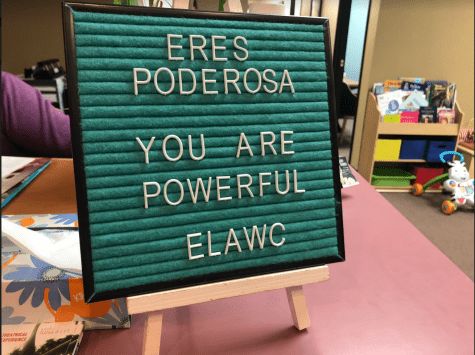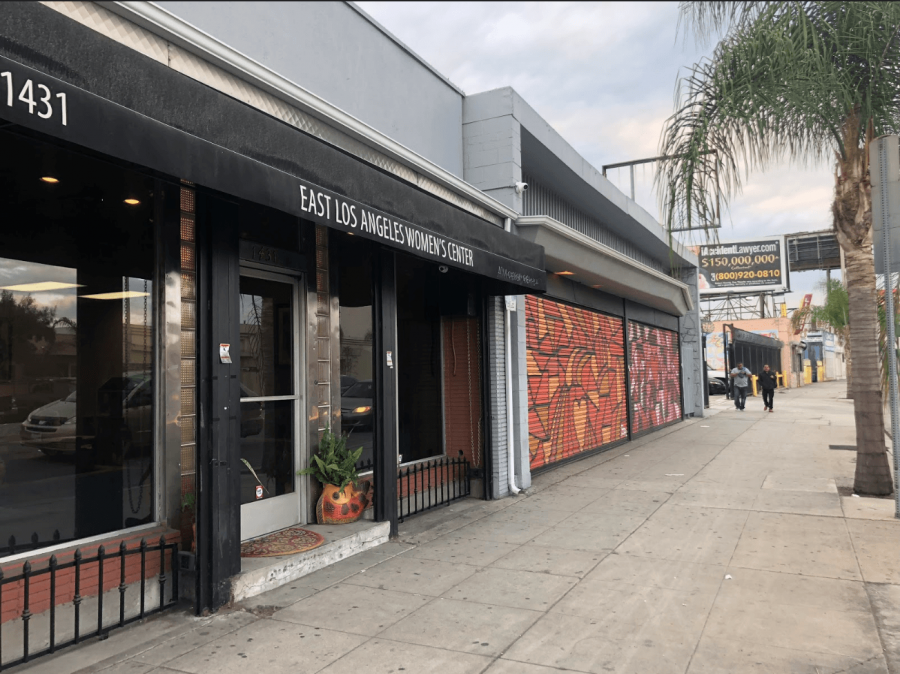Water, scalding to the touch, poured on her. If only it could go through me.
She scrubbed and scrubbed tirelessly at her bare skin, red and raw from the effort.
It wasn’t enough. Why can’t I get clean?
Lisa Vargas said she’ll never forget her first shower after returning home from the 15 years she spent as a victim of human trafficking.
“I wanted to be able to wash those years away,” Vargas recalled recently.
Vargas was 10 when her mom kicked her out of the house and she befriended an older homeless man. She looked for him at his family’s bar and they offered her work. One of them raped and abducted her, locking her up in a back room for nearly 15 years.
“I was chained. I was tortured. I had like 20 clients a day. I wasn’t eating. I was on drugs: A full-blown heroin addict at the age of 11,” Vargas said. “That’s how I survived because I was always high. During those moments, I wasn’t feeling anything. I wasn’t thinking about anything.”
Years later, after undergoing counseling for domestic violence at the East Los Angeles Women’s Center, she began volunteering there and was eventually offered a job as a human trafficking outreach specialist and case manager. The center has been working on issues related to sexual assault and domestic violence for decades and the recent #MeToo movement has only helped to raise the profile of that work.
By the time of her escape at age 25, Vargas had experienced countless instances of sexual assault and violence.
For Vargas, freedom initially meant redefining her appearance and the perception others had of her. She gained weight and began wearing baggy clothes. “I didn’t want a man to look at me,” she said.
Slowly, she embraced her first act of self care and painted her nails: A powerful act of agency after years of not wanting to be noticed and before that, being told what to wear, how to act and who to be.
Vargas said the women’s center played a vital role in her transition period, as she learned to cope with her past trauma.

“I had a lot of shame. I had a lot of guilt,” Vargas said. “It took a while for me to want to go through those moments again but the counselors and therapists were really patient with me.”
The center offers counseling and support to help survivors of domestic violence, sexual assault and human trafficking heal, according to Claudia Arevalo, the group’s advocacy and volunteer coordinator.
Over a recent 10-year period, reports of rape in the Los Angeles area increased by approximately 50 percent, according to the LAPD Crime & Initiatives report.
There are a number of factors that influence an individual’s decision and ability to voice their experience of sexual violence. Experts say language is a common inhibitor of reporting, particularly in L.A., where many immigrants live.
Arevalo said that the center “being a bilingual agency is a huge step forward for a lot of people because they’ve never been able to sit down with somebody and talk to them about what happened to them.”
In her experience as a human trafficking outreach specialist, Vargas has seen the recent political threat to immigrants as a source of fear-mongering that ensnares young women into sexual exploitation.
“A lot of the young girls are born here but their parents weren’t,” Vargas said. “These girls are being drawn into trafficking and prostitution because they’re telling them that if they don’t do it, they’ll call the detention centers or ICE and have their parents taken away.”
With its focus on the Latino/a community, she said the center recognizes the unique barriers and vulnerabilities their clients may experience, as a result of internal and familial conditioning.
“Due to tradition, due to culture, they feel an obligation to their abusive partners,” Arevalo said.
A lack of awareness and exposure also silences victims.
“People don’t understand the complexities of what [domestic violence and sexual assault] is and what it looks like,” Arevalo added. ”They think it’s only happening to them and it’s not possible it’s happening to other people in the same way.”
The center offers many educational classes to help individuals identify abuse in relationships and find healthy ways to cope with those situations.
Often, abusive people see “you as property, not a partner,” said Arevalo.
The perpetrators of violence are disproportionately male and between 25 and 35 years of age, according to City of Los Angeles data.
The trend of gendered violence can be attributed to a ruthless combination of toxic masculinity, gender roles and intergenerational trauma, according to Arevalo.
In response, just a few months ago, the center began a men’s support group for the partners of its current clients. The goal is to create a space for abusive men to discuss and dissect the reasoning behind their abusive tendencies before they escalate to physical violence.
Many women who witness and experience sexual violence go on to shape their understanding of gender by it, a dichotomy where men are the aggressors and women are the victims, according to both Arevalo and Vargas.
“Afterward, I didn’t trust men,” recalled Vargas. ”Being that I had been trafficked, I was forced to have sex with a lot of people that I knew from the streets or from elementary school like [students’] fathers would come. I’ve had to have sex with police officers, lawyers, doctors…so you don’t have trust in anybody.”
Vargas said she was initially embarrassed to disclose her experience for fear of the stigma surrounding sexual assault.
“I didn’t want people to look at me like, ‘Oh, poor baby,’” she said.
Now — more than twenty years and fifteen broken bones later — Vargas exudes confidence and self-acceptance.
“The first thing I do when I walk through the hallways is tell everybody how beautiful they are,” Vargas said. “‘Good morning, beautiful!’ or ‘Oh, you look really pretty today.’ Sometimes, that can make or break a person. It’s to let them know, I don’t see your past. I don’t see your abuse. I see you.”
Community News reporters are enrolled in JOUR 3910 – University Times. They produce stories about under-covered neighborhoods and small cities on the Eastside and South Los Angeles. Please email feedback, corrections and story tips to UTCommunityNews@gmail.com.







